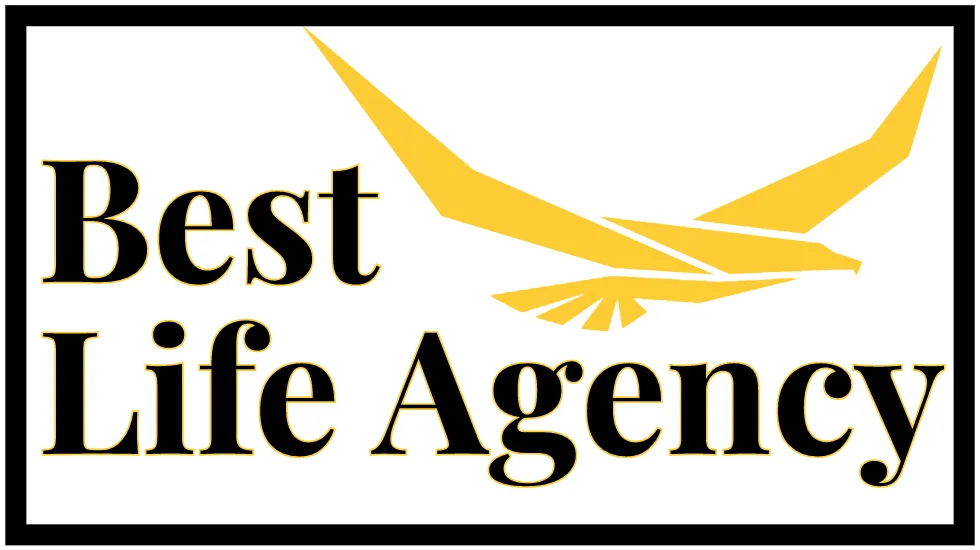
C30 - Steering the Ship: How Leadership Fuels Agency Growth and Sparks Innovation
Steering the Ship: How Leadership Fuels Agency Growth and Sparks Innovation
Introduction:
Picture the captain of a ship, not just any ship, but one that navigates the tumultuous seas of the life insurance industry. This captain—much like the leaders within life insurance agencies—must chart a course towards growth, steer through the fog of market challenges, and inspire the crew to row harder, smarter, and together. In this exploration, we dive into the heart of effective leadership, humorously comparing it to a sea voyage where the right leadership qualities are your compass, map, and North Star.
Highlights:
Visionary Leadership:

The captain’s gaze must be fixed on the horizon, visualizing a future where the agency not only survives but thrives.
Fostering a Culture of Innovation:
Encouraging a ship where every sailor feels free to innovate, experiment, and pitch new navigation methods.
Empowering Teams:
Delegating duties not just to delegate but to empower, trusting each sailor to navigate their part of the ship.
Adaptive Leadership:
Adjusting the sails to meet the changing winds of the industry, whether they be regulatory storms or technological tsunamis.
Ethical Leadership:
Steering by a moral compass that ensures the welfare of the crew (employees) and the passengers (clients) above all.
In-Depth Analysis:
Creating Visionaries at the Helm:
Visionary leaders act as the lighthouse for the agency, guiding it through dark waters towards growth. It’s about seeing beyond the immediate waves to the potential harbors of success.
Cultivating a Deck of Innovators:
Fostering a culture of innovation on a ship means every sailor knows they can invent a new sail or a more efficient way to navigate. It's about creating a space where failure is not feared but seen as a step towards discovery.
Empowering the Crew for the Journey:
True leaders understand the strength of their crew. Empowering teams is akin to trusting your navigators and deckhands with the map and the wheel, knowing they will sail the ship safely through stormy seas.
Navigating Through Industry Storms with Adaptive Leadership:
The life insurance sea is ever-changing. Adaptive leadership involves recognizing when to batten down the hatches or when to take advantage of the wind, always ready to adjust strategies to ensure the agency’s survival and prosperity.
Sailing with Honor: Ethical Leadership:
Ethical leadership ensures that the agency’s voyage is marked by integrity. This means making decisions that protect the wellbeing of the crew and passengers alike, ensuring that the agency’s journey is both successful and honorable.
Real-World Examples:
Case Study: VisionaryLife Leaders
VisionaryLife exemplifies how effective leadership can propel an agency forward. Through initiatives like their innovation lab, they have not only charted new territories in insurance products and services but also cultivated an environment where every employee feels valued and empowered to contribute to the agency’s journey.
Practical Applications:
Implement Leadership Development Programs:
Just as a captain trains their successors, invest in the leadership skills of your team.
Promote Cross-Functional Leadership:
Encourage departments to collaborate, breaking down silos and fostering a united crew.
Stay Connected to Clients:
Use client feedback as your North Star, guiding the agency’s strategic decisions and innovations.
Cultivate Recognition and Accountability:
Celebrate the successes and learn from the storms, building a culture of transparency and continuous improvement.
Conclusion:
The journey of leadership within life insurance agencies is both challenging and rewarding. Like seasoned captains, leaders must navigate their ships through uncharted waters with vision, innovation, and integrity. The examples and strategies outlined here serve as a compass for those ready to steer their agencies towards growth and innovation.
Call to Action:
Are you ready to take the helm and guide your agency to new horizons? Share your leadership journey or the innovative practices you’re implementing in the comments below. Let’s embark on this voyage together, charting a course towards a brighter future for our agencies and the communities they serve.
FAQs:
Q: How does visionary leadership impact a life insurance agency?
A: Visionary leadership sets a clear direction for the future, aligning the agency’s goals with market opportunities and client needs. It acts as a guiding star, ensuring the agency navigates towards long-term success and innovation.
Q: What strategies can leaders use to foster a culture of innovation?
A: Leaders can encourage a culture of creativity by promoting experimentation, supporting new ideas, and providing a safe space for failure and learning. This involves recognizing and rewarding innovative efforts and integrating them into the agency’s growth strategy.
Q: How can leadership empower teams effectively?
A: Effective empowerment comes from trusting employees with autonomy, providing them with the resources and support they need, and encouraging initiative. Leaders should foster an environment where team members feel valued and confident in contributing to the agency's objectives.
Q: What is adaptive leadership and why is it important in the life insurance industry?
A: Adaptive leadership involves being flexible and responsive to industry changes, including regulatory shifts, technological advancements, and evolving client expectations. It’s crucial for navigating the rapidly changing landscape of the life insurance industry and ensuring the agency remains competitive and relevant.
Q: Why is ethical leadership important in a life insurance agency?
A: Ethical leadership ensures that all decisions and actions reflect the agency’s commitment to integrity and client welfare. It builds trust with clients and employees, fostering a reputation for reliability and ethical conduct, which is essential in the finance and insurance sectors.
Case Study: VisionaryLife Leaders
Overview:
VisionaryLife stands as a prime example of how visionary and ethical leadership can drive agency growth and innovation. The leadership team’s strategic approach to embracing emerging technologies and adapting to client needs has positioned VisionaryLife as a frontrunner in the industry.
Innovation Lab Initiative:
Under the guidance of its leadership, VisionaryLife launched an innovation lab that encouraged cross-departmental collaboration to develop new insurance products and client service technologies. This initiative not only led to breakthrough offerings but also significantly boosted team morale and engagement.
Ethical Framework:
VisionaryLife’s leaders also prioritized ethical practices, setting an example and integrating a strong ethical framework within the agency’s operations. This approach has reinforced trust among clients and employees, serving as a foundation for the agency’s success.
Continuous Learning and Adaptability:
The leadership team at VisionaryLife emphasized the importance of continuous learning and adaptability, engaging in industry forums and leadership training to stay ahead of trends and challenges. This commitment to growth and innovation has ensured VisionaryLife’s competitive edge.
Emerging Trends
Digital Transformation Leadership:
Emphasizing the role of leadership in driving digital initiatives to enhance operational efficiency and client service.
Sustainability in Leadership:
Increasing focus on sustainable practices within leadership strategies, reflecting the growing importance of environmental and social governance (ESG) criteria.
Emotional Intelligence (EI) in Leadership:
Recognizing the significance of emotional intelligence as a critical leadership skill, facilitating better communication, empathy, and conflict resolution.
Resources
Harvard Business Review (HBR): A wealth of articles and case studies on leadership, innovation, and management best practices. https://hbr.org/
Leadership Development Programs - Forbes: Insights and advice on developing leadership skills and fostering leadership within organizations.
Center for Creative Leadership (CCL): Offers research, tools, and programs for improving leadership skills and organizational effectiveness. https://www.ccl.org/
Ethical Leadership Resources - Ethics & Compliance Initiative (ECI): Guidance and resources on promoting ethical leadership and building ethical cultures within organizations. https://www.ethics.org/
Zing Business Systems (website: zingacp.com/home) revolutionizes how businesses talk to customers by turning missed calls into texts, which helps close the communication gap. This technology saves potential sales and improves customer interaction across multiple channels. It streamlines customer management and tracks important data for marketing and sales. Enhance your customer service and boost your online marketing with Zing and don't lose customers from missed calls.
Start your own blog checklist:
Here is a quick checklist to get you started with you website blow. Remember imperfect action beats inaction, get started and keep publishing.
Create your blog page then add the blog element
Add the blog element to your page and select if you want compact or list view
Start planning your blog topics by Identifying what resonates with your audience. If you are stuck you can use sites like - https://answerthepublic.com/
Create an outline serves your company goals.
Write conversationally, like if you were telling a story to a friend
Pick a catchy title.
Use several media types (gif, short video, or image) to deliver your messages.
Use data to back up claims or ideas - make sure to cite all sources❗
Have a call to action and or give your audience something to walk away with.
Take 30 minutes to edit your post.
Frequently Asked Questions
Common Questions Answered for your convenience.
What types of life insurance do you specialize in?
At Best Life Insurance, we offer a wide range of life insurance plans to suit our clients' varying needs. These include Term Life Insurance, which is an affordable option providing a payout to your beneficiaries if you die within the policy term, ensuring they're financially secure. Whole Life Insurance gives you coverage for life and builds cash value that you can use if necessary. Indexed Universal Life Insurance (IUL) is a flexible policy where the cash value can increase based on a stock market index's performance, offering growth potential.
How do I choose the right life insurance policy for me?
Choosing the right life insurance policy involves assessing your financial situation, long-term goals, and the needs of your dependents. Our experienced agents work closely with you to understand your unique circumstances, helping you compare the benefits of different policies and guiding you to make an informed decision that aligns with your financial planning goals.
What is the process for applying for life insurance?
Applying for life insurance with us is straightforward. Initially, you'll have a consultation with one of our licensed agents to discuss your needs and options. Following this, you'll complete an application that includes health, lifestyle, and financial questions. Depending on the policy, a medical exam may be required. Once your application is reviewed and approved, we'll finalize the policy details and issue your coverage.
Can I change my life insurance policy once it's in place?
Yes, adjustments can often be made to your life insurance policy after it's in place. This might include changing your coverage amount, adjusting beneficiaries, or, in some cases, converting from term to permanent coverage. Our agents are here to discuss your needs and help facilitate any changes to ensure your policy continues to meet your evolving needs.
What factors affect my life insurance premiums?
Life insurance premiums are influenced by several factors, including the type of policy you choose, the amount of coverage, your age, health status, lifestyle choices (such as smoking), and your family medical history. Our agents can provide personalized quotes and explain how each factor may impact your premiums.
How does a life insurance payout work, and who can be a beneficiary?
A life insurance payout, or death benefit, is the amount paid to your designated beneficiaries upon your death. You can nominate anyone as a beneficiary, including family members, friends, or organizations. The payout can be used by beneficiaries for any purpose, such as covering living expenses, paying off debts, or funding education. Our policies ensure a streamlined claims process, aiming for a quick and efficient payout to support your beneficiaries during a difficult time.
